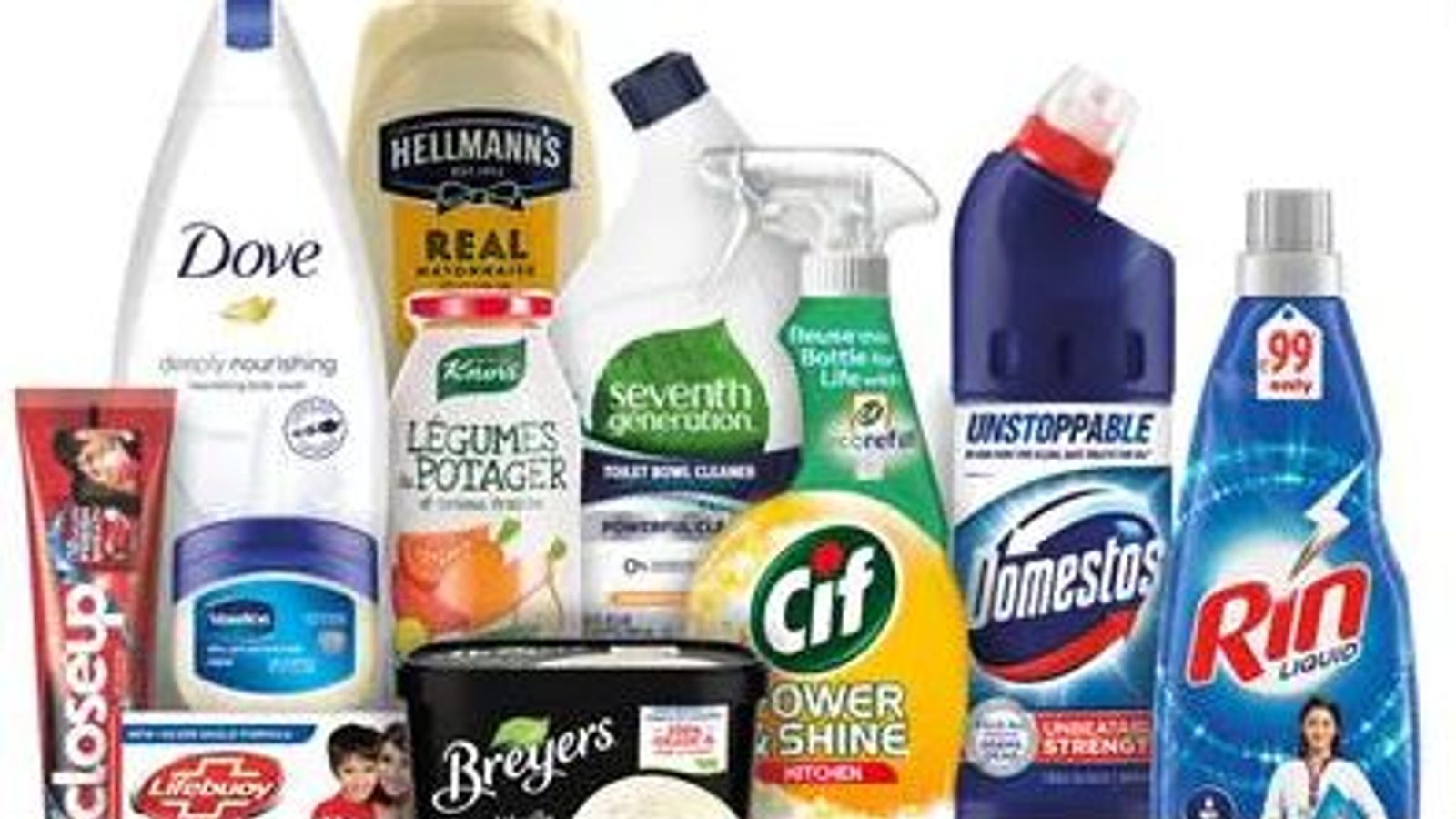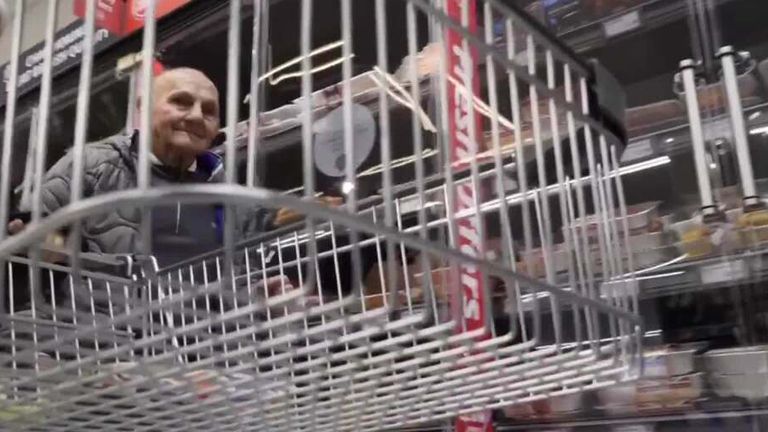The company behind many popular consumer brands including Marmite and Magnum ice creams has said it expects price growth to ease later this year but not find a reverse gear.
As the cost of living crisis continues to harm household spending power, Unilever forecast a €1.5bn (£1.3bn) impact from inflation during the first half of its financial year.
The company, which also includes brands such as Domestos and Hellmann’s in its stable, and rivals raised prices as COVID pandemic supply woes and latterly Russia’s war in Ukraine significantly pushed up input costs.
While production costs spiked because of soaring energy prices, the invasion saw many other commodities – such as cocoa, wheat and sunflower oil – also rise sharply.
Moves by the consumer goods sector to pass these costs on to customers including supermarkets have led to grocery inflation running at record levels.
There have been fierce battles between manufacturers and grocery chains over prices, with several high profile rows resulting in products being temporarily removed from shelves during the negotiation process.
The cost of living crisis has resulted in a stampede for cheaper supermarket own brands and this was reflected in Unilever’s annual results..
They showed that sales volumes – the amount of goods sold – fell by 2.1%.
An 11.3% rise in prices, however, helped it achieve underlying sales growth of 9% – beating market expectations – though underlying operating profits were only slightly higher at €9.7bn (£8.6bn).
The company said of the outlook: “In the first half, underlying price growth will remain high, and volume growth will be negative.
“Volume will improve as price growth softens, but it is too early to say whether volume will turn positive in the second half.”
Read more from Sky News:
Disney to axe 7,000 jobs in bid to cut costs
Shopping at convenience stores instead of big supermarkets could cost you extra £800
Its guidance signals that its prices will remain elevated throughout the year but could fall back in 2024.
The forecast contrasts with evidence elsewhere that prices could fall back in the final six months of this year.
Packaging giant Smurfit Kappa told investors on Wednesday that its input cost inflation had moderated and prices would inevitably fall in the second half due to contractual terms with some customers.

